Data science in gaming is the engine building more immersive and engaging worlds. It empowers developers to use machine learning to understand player behavior, predict preferences, and optimize game mechanics in real-time. This integration of technology ensures that every update adds value and enhances the user experience, from balancing in-game systems to delivering personalized content. Ultimately, this data-driven approach is shaping a more dynamic and responsive future for all of interactive entertainment.
Key Takeaways
- Data science transforms game development and user experiences.
- Advanced analytics help optimize gameplay and mechanics.
- Machine learning enables personalized gaming experiences.
- Real-world examples like Elden Ring showcase its impact.
- Data-driven decisions ensure quality updates and releases.
Introduction to Data Science in Gaming
The integration of data science in gaming is transforming the industry. By analyzing player behavior and preferences, developers can create more engaging and balanced experiences. This approach is not just about improving gameplay but also about understanding what players truly want.
Overview of Data Science in the Gaming Industry
Data science plays a vital role in modern game development. Developers collect data from various sources, such as in-game actions, player feedback, and social media trends. This information is then analyzed to identify patterns and improve game mechanics.
For example, in Elden Ring, data analytics helped refine combat systems and balance difficulty levels. This ensures that players have a challenging yet enjoyable experience. Similarly, RPGs like Avowed use data to create immersive worlds and dynamic characters.
Here’s you will learn how to use data science in gaming:
| Application | Impact |
|---|---|
| Player Behavior Analysis | Identifies trends to enhance engagement. |
| Game Design Optimization | Ensures balanced and enjoyable gameplay. |
| Personalized Experiences | Tailors content to individual preferences. |
Emerging technologies like AI and machine learning are further enhancing these capabilities. For instance, predictive analytics can forecast player actions, allowing developers to create more responsive and adaptive games.
As the industry evolves, data-driven decisions are becoming essential. Whether it’s a new update or a major event like February’s Star release, analytics ensure that every change adds value. This integration of data science is paving the way for a more dynamic and player-focused future.
Innovations in Game Development Through Data Science
Modern game development thrives on the insights provided by data science. By analyzing player behavior and system performance, developers can create more engaging and polished experiences. This approach is not just about improving gameplay but also about pushing the boundaries of what games can achieve.
Data-Driven Game Design
Data-driven game design is transforming how stories are told and mechanics are crafted. Developers collect data from in-game actions, player feedback, and social media trends to inform their decisions. This helps create balanced and immersive experiences that resonate with players.
For example, *Genshin Impact* uses analytics to adjust character abilities and event timings. This ensures that players remain engaged and challenged. Similarly, *Days Gone* leverages data to refine its open-world system, making it more dynamic and responsive.
- Storytelling: Data helps craft narratives that adapt to player choices.
- Gameplay Mechanics: Analytics ensure balanced and enjoyable challenges.
- Personalization: Tailored experiences keep players invested.
Optimizing Performance with Advanced Analytics
Advanced analytics play a crucial role in optimizing game performance. Developers use real-time data to identify and fix issues, ensuring smooth gameplay across platforms. Tools like heatmaps and debugging software help enhance stability and reduce bugs.
For instance, *Elden Ring* uses analytics to monitor system performance and adjust difficulty levels. This ensures that players have a seamless experience, whether on PlayStation or Nintendo. Iterative updates, driven by data, keep games fresh and relevant.
“Data science allows us to anticipate player needs and deliver updates that truly matter.”
Leading studios are setting trends by harnessing data to refine their release strategies. Whether it’s a major update or a seasonal event, analytics ensure that every change adds value. This ongoing evolution is shaping the future of game development.
Analytics and Player Behavior in Gaming
Analytics is reshaping how players interact with games, offering deeper insights into behavior and preferences. By leveraging data, developers can create experiences that feel personal and engaging. This approach goes beyond improving gameplay—it’s about understanding what players truly want.
Leveraging Data for Enhanced Player Experience
Detailed analytics allow developers to personalize content for each player. For example, *Genshin Impact* uses data to adjust character abilities and event timings. This ensures players remain engaged and challenged. Similarly, *Elden Ring* analyzes player actions to refine its combat system, balancing difficulty for a smoother experience.
User feedback also plays a crucial role. Developers collect data from in-game actions and social media trends to shape updates. This ensures that every change adds value, whether it’s a new feature or a seasonal event.
Understanding In-Game Behavior Trends
Tracking player behavior helps developers identify patterns and make real-time improvements. For instance, heatmaps show where players spend the most time, allowing for targeted adjustments. This data-driven approach ensures that games remain dynamic and responsive.
Trends in player interaction are also shaping the future of game design. RPGs like *Avowed* use analytics to create immersive worlds and dynamic characters. This not only enhances the experience but also keeps players invested in the story.
“Analytics allows us to anticipate player needs and deliver updates that truly matter.”
As the industry evolves, data-driven decisions are becoming essential. Whether it’s a major release or a system update, analytics ensure that every change enhances the player experience. For those interested in learning more about data science, explore these free resources to dive deeper into this transformative field.
Impact of Real-Time Data on Game Updates and Events
Real-time data is reshaping how updates and events are managed in modern games. By leveraging live insights, developers can schedule updates more effectively and coordinate events seamlessly. This approach ensures that players receive timely improvements and engaging content.
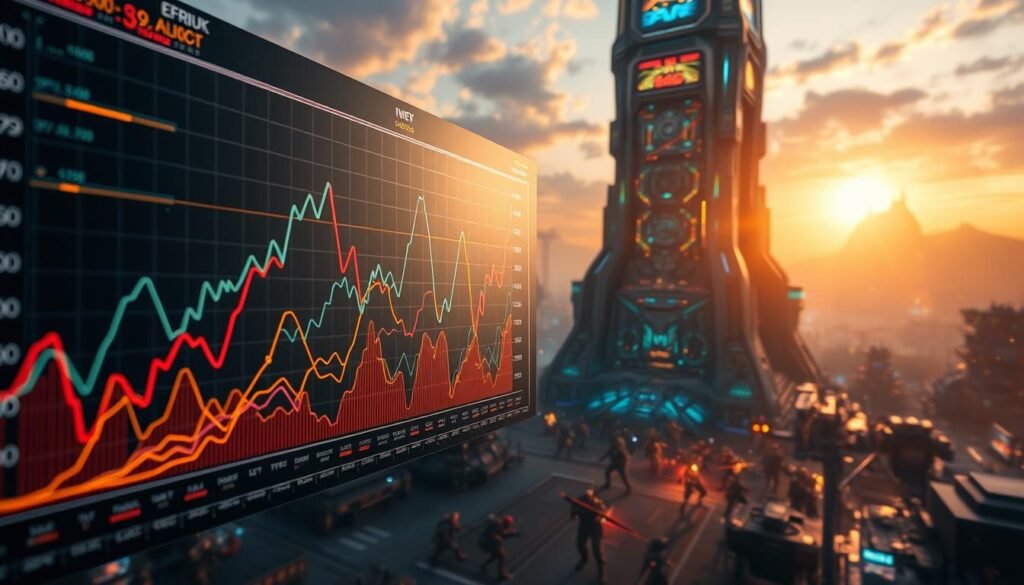
Case Studies: System Updates and Release Dates
Real-time data plays a crucial role in planning and executing system updates. For example, *Elden Ring* used live analytics to refine its combat mechanics and balance difficulty levels. This ensured a smoother experience for players on platforms like PlayStation and Xbox.
Another case is *Days Gone*, where developers analyzed player feedback to optimize its open-world system. This data-driven approach allowed for targeted adjustments, enhancing gameplay and keeping players engaged.
Here’s how real-time data influences game updates:
| Application | Impact |
|---|---|
| Scheduling Updates | Ensures timely and relevant improvements. |
| Coordinating Events | Keeps players engaged with fresh content. |
| Optimizing Performance | Reduces bugs and enhances stability. |
Reliable data also contributes to setting accurate release dates. For instance, *Avowed* used analytics to streamline its beta tests, ensuring a polished launch. This approach minimizes delays and maximizes player satisfaction.
Recent events, like the *Elden Ring Nightreign* update, showcase the power of real-time data. Developers coordinated promotional events and system updates seamlessly, creating a buzz among players. This highlights the importance of a data-first approach in managing live game environments.
“Real-time data allows us to anticipate player needs and deliver updates that truly matter.”
Feedback loops and performance metrics further inform future development cycles. By analyzing player behavior, developers can refine updates and ensure smooth rollouts. This ongoing process keeps games dynamic and responsive to player needs.
In conclusion, real-time data is essential for managing updates and events effectively. It ensures that every change adds value, enhancing the overall player experience. As the industry evolves, this data-driven approach will continue to shape the future of game development.
Enhancing Gaming Experiences with AI and Machine Learning
The fusion of AI and machine learning is unlocking new possibilities in game design. These technologies are not just improving gameplay but also creating more immersive and personalized experiences. From predicting player behavior to refining quality assurance, AI is shaping the future of the industry.
Predictive Analytics in Game Dynamics
Predictive analytics is revolutionizing how games adapt to player actions. By analyzing data from in-game behavior, developers can foresee trends and potential issues. For example, *Genshin Impact* uses machine learning to adjust character abilities and event timings, ensuring a balanced experience.
This approach also helps in optimizing game mechanics. Developers can identify patterns and make real-time adjustments, keeping players engaged. Tools like heatmaps and debugging software further enhance stability and performance.
Personalizing Content Through Data Insights
Machine learning enables dynamic content delivery tailored to individual preferences. By analyzing player data, developers can create personalized experiences that resonate with users. This includes adapting storylines, challenges, and rewards based on player behavior.
For instance, *Elden Ring* uses data insights to refine its combat system, balancing difficulty for a smoother experience. This level of personalization keeps players invested and enhances overall satisfaction.
Quality Assurance Driven by Data Science
AI-powered tools are transforming quality assurance processes. Developers can preempt and fix bugs before they impact players. Continuous learning models analyze performance data, ensuring smooth updates and releases.
For example, during the February update of *Genshin Impact*, AI-driven testing identified critical issues, allowing for a seamless release. This approach not only improves game stability but also builds trust with players.
“AI and machine learning allow us to anticipate player needs and deliver updates that truly matter.”
In conclusion, AI and machine learning are essential for modern game development. They enhance predictive analytics, personalization, and quality assurance, ensuring a seamless and engaging experience for players. As technology evolves, these tools will continue to shape the future of the industry.
Gaming: A Data Science Perspective
Emerging analytics trends are reshaping the gaming landscape in exciting ways. From player behavior to game mechanics, data science is driving innovation and transforming how games are developed and experienced. Recent leaks and market reports highlight the growing role of advanced analytics in shaping the future of the industry.

New Technologies and Algorithms
Developers are leveraging updated algorithms to create more immersive and responsive games. For example, the February update for *Elden Ring Nightreign* introduced refined combat mechanics, balancing difficulty based on player feedback. This data-driven approach ensures smoother gameplay and higher engagement.
Similarly, RPGs like *Avowed* are using analytics to craft dynamic characters and immersive worlds. These advancements are setting new standards for storytelling and player interaction.
Player Engagement and Predictive Analytics
Predictive analytics is revolutionizing how games adapt to player actions. By analyzing in-game behavior, developers can foresee trends and potential issues. This allows for real-time adjustments, keeping players engaged and challenged.
For instance, *Days Gone* used data insights to optimize its open-world system, enhancing gameplay and player satisfaction. This approach ensures that every update adds value, whether it’s a new feature or a seasonal event.
Role of Events and Showcases
Major events like Nintendo Direct and PlayStation showcases are highlighting emerging trends. These platforms reveal upcoming innovations and provide a glimpse into the future of gaming. For example, the recent Nintendo Direct showcased new RPGs and fantasy titles, emphasizing the role of analytics in their development.
| Trend | Impact |
|---|---|
| Predictive Analytics | Enhances player engagement and game mechanics. |
| Dynamic Content | Creates personalized experiences for players. |
| Event Showcases | Highlights innovations and upcoming features. |
Future Predictions
As the industry evolves, data science will continue to play a pivotal role. From predictive analytics to dynamic content delivery, these tools will shape the future of gaming. Events like the May showcase will further emphasize the impact of analytics on game development.
“Data science allows us to anticipate player needs and deliver updates that truly matter.”
In conclusion, emerging trends in gaming analytics are transforming the industry. By leveraging data, developers can create more engaging and personalized experiences, ensuring a bright future for gamers worldwide.
Conclusion
Data science has undeniably transformed the way games are created and enjoyed. By leveraging real-time data and advanced analytics, developers can craft experiences that feel personal and engaging. From refining character abilities to optimizing performance on platforms like PlayStation and Nintendo, these tools ensure smoother gameplay and higher player satisfaction.
Games like Elden Ring and Nightreign showcase the power of data-driven strategies. They use insights to balance difficulty, enhance storytelling, and deliver updates that resonate with players. This approach not only improves game mechanics but also keeps players invested in every season and event.
Looking ahead, the integration of data science will continue to drive innovation. Developers will rely on feedback loops and predictive analytics to create more immersive worlds. Stay informed on these trends by exploring trusted sources like Pulse Data Hub.
In conclusion, the future of gaming is shaped by data-driven strategies. As technology evolves, so will the ways we play, ensuring every new release and showcase offers something extraordinary.





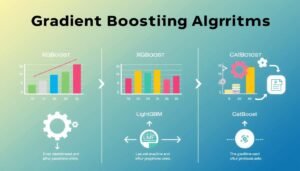

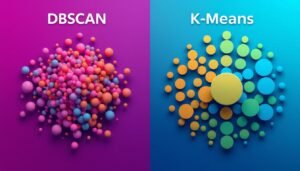

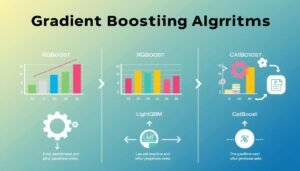
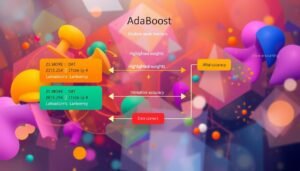




79 thoughts on “Data Science in Gaming: The Ultimate Guide to How It’s Used”
Мріяла потрапити на майстер-клас із французької кухні, але не встигла зареєструватися. Тепер тільки уявляю, як учасники навчалися готувати страви від шефів світового рівня. Наступного разу буду першою у списку!
У мене є плейлист, який я включаю, коли потрібно зарядитися енергією. І знаєте, хто там завжди є? DJ Gafur. Його треки не просто круті, вони реально змушують рухатися. А ще мене вражає його підхід до музики: він грає на гітарі, додаючи до електронних бітів справжню душу. Якщо ще не чули його музику, зайдіть на його сайт і послухайте. Ви точно не залишитесь байдужими!
Уявіть себе в Мехіко, готуючи автентичні страви під керівництвом професіоналів. Саме це пропонує магія кулінарії. Наступного разу я точно там буду!
Привет всем! Trance Community стал для меня местом, где я нашёл вдохновение. Всё началось с того, что я случайно зашёл на их раздел о фестивалях. Я искал информацию о Trance Illusion, и там люди делились своими впечатлениями и советами. Это вдохновило меня отправиться на фестиваль, где я услышал невероятные треки от Paul van Dyk и Giuseppe Ottaviani. На фестивале я встретил участников форума, и это стало началом новой дружбы. Теперь мы не только обсуждаем музыку, но и планируем поездки на другие фестивали. Trance Community стал для меня местом, где я могу быть собой. А какие моменты сделали это сообщество особенным для вас?
I’m not sure where you’re getting your info, but good topic. I needs to spend some time learning much more or understanding more. Thanks for magnificent information I was looking for this info for my mission.
Great line up. We will be linking to this great article on our site. Keep up the good writing.
Hello very cool blog!! Man .. Beautiful .. Wonderful .. I’ll bookmark your blog and take the feeds also…I am glad to seek out so many useful information right here within the post, we want work out extra techniques in this regard, thank you for sharing. . . . . .
As soon as I noticed this web site I went on reddit to share some of the love with them.
**mindvault**
mindvault is a premium cognitive support formula created for adults 45+. It’s thoughtfully designed to help maintain clear thinking
I reckon something genuinely interesting about your web blog so I bookmarked.
Regards for helping out, superb info .
Heya i’m for the primary time here. I came across this board and I to find It truly helpful & it helped me out much. I hope to give something again and aid others such as you aided me.
Great write-up, I am regular visitor of one?¦s web site, maintain up the excellent operate, and It is going to be a regular visitor for a lengthy time.
I think this internet site has some real superb information for everyone. “To be able to be caught up into the world of thought — that is being educated.” by Edith Hamilton.
**breathe**
breathe is a plant-powered tincture crafted to promote lung performance and enhance your breathing quality.
This is pure gold. Thank you for sharing your expertise.
I?¦ve read a few just right stuff here. Certainly price bookmarking for revisiting. I wonder how so much effort you put to create the sort of wonderful informative web site.
You really make it seem so easy with your presentation but I find this topic to be really something which I think I would never understand. It seems too complex and very broad for me. I’m looking forward for your next post, I’ll try to get the hang of it!
I must express my appreciation to you just for bailing me out of this difficulty. As a result of browsing throughout the the net and obtaining ways which were not beneficial, I figured my life was well over. Living devoid of the approaches to the difficulties you have resolved by means of your main posting is a crucial case, as well as those that would have in a negative way affected my entire career if I hadn’t discovered your web page. Your main skills and kindness in maneuvering all the pieces was invaluable. I’m not sure what I would have done if I had not come upon such a point like this. I’m able to at this time relish my future. Thanks very much for your professional and sensible help. I will not think twice to refer the website to anyone who needs to have recommendations on this matter.
I know this if off topic but I’m looking into starting my own weblog and was wondering what all is needed to get set up? I’m assuming having a blog like yours would cost a pretty penny? I’m not very internet savvy so I’m not 100 certain. Any suggestions or advice would be greatly appreciated. Kudos
Just want to say your article is as astonishing. The clearness for your submit is just excellent and i could suppose you are a professional on this subject. Fine along with your permission allow me to grab your RSS feed to keep up to date with coming near near post. Thanks 1,000,000 and please continue the enjoyable work.
I see something genuinely interesting about your web blog so I saved to fav.
There is perceptibly a bundle to realize about this. I assume you made various nice points in features also.
Great breakdown
This blog is definitely rather handy since I’m at the moment creating an internet floral website – although I am only starting out therefore it’s really fairly small, nothing like this site. Can link to a few of the posts here as they are quite. Thanks much. Zoey Olsen
Hawkplay999login is where it’s at! Super slick interface, and the games are top-notch. Had a blast playing, and the payouts were quick. Definitely recommend giving hawkplay999login a shot. You won’t regret it!
Phfun88, haven’t tried it myself. Heard people talking about it, seems decent. Anyone here winning big on phfun88? Share your secrets! Looking for a reliable online platform and hoping this is it. Have a look at phfun88.
I am lucky that I detected this website, exactly the right info that I was searching for! .
Unsere umfangreiche Spielbibliothek umfasst über 450 Spiele, darunter
Spielautomaten, Tischspiele, Live-Casino, Jackpots und virtuelle Sportarten. Erleben Sie alles selbst – kommen Sie und genießen Sie ein weltklasse Abenteuer im Spielbank
Lindau Casino heute! Mit unseren verschiedenen Zahlungsmöglichkeiten können Sie sich darauf konzentrieren, Ihr Spielerlebnis
zu genießen, ohne sich um die Logistik Ihrer Finanzen sorgen zu müssen.
Bonus und Freispiel Angebote ohne Einzahlung Faszinierend ist beispielsweise das Spiel am Roulettetisch – mit dem Blick aus dem Obergeschoss auf die herrliche Kulisse.
Das Haus bietet eine umfassende Auswahl – sowohl hinsichtlich des Kleinen Spiels an den Autoamten als auch beim Großen Spiel.
Und wer es von der Spielbank aus nicht weit bis ins Bett haben will, findet im direkten Umfeld mehrere
Hotels gehobener Kategorien. Mit dem Cantinetta al Lago gibt es die
gehobene Küche direkt in der Spielbank. Die Hotellandschaft und Gastronomieszene haben auf jeden Fall einige Highlights zu bieten.
References:
https://online-spielhallen.de/vegaz-casino-bonus-code-ihr-weg-zum-maximalen-spielvergnugen/
Die Einführung der Pokerchips war so bahnbrechend, dass sie das Spiel standardisierten und die Verbreitung des Pokerspiels wesentlich erleichterten. Was manchen Spielern jedoch
nicht bewusst ist, ist, dass zu diesen wichtigen Elementen auch Pokerchips gehören.
Spielchips ersetzen Bargeld an den Tischen und sorgen so für mehr
Sicherheit, Geschwindigkeit und Standardisierung.
Das Farbwertsystem stellt sicher, dass Spieler schnell einschätzen können, wie viel
Geld im Spiel ist. Beispielsweise stehen weiße Chips üblicherweise für 1
$, rote Chips für 5 $, grüne Chips für 25 $, schwarze Chips für 100 $
und violette Chips für 500 $. Das Gewinnerset war nicht
das schönste – es war das einzige, das die Überwachung lesen konnte schnellsten mit Stapeln, die halb von Händen verdeckt sind.
Das Gesetz ist Unterscheidbarkeit, Rückverfolgbarkeit und überprüfbare
Kontrolle.
References:
https://online-spielhallen.de/ihr-venlo-casino-login-eine-einfache-schritt-fur-schritt-anleitung/
Beyond its gaming facilities, The Star Sydney is celebrated for its luxury accommodations,
comprising several hotels and serviced apartments that
cater to diverse guest preferences. You will only
be granted access to the Crown Sydney Casino once these
checks have been satisfactorily completed and Crown has made a determination that you may be granted membership.
Please note you’ll need a physical and valid form of Acceptable Identification to complete the membership application process (digital ID cannot be accepted).
Find the ultimate gastronomic dining experience at Crown Sydney’s
all-you-can-eat buffets. The Crown Sydney Casino is located in a convenient
spot with easy access to major roads and public transportation.
Between February and March 2018, tower cranes were assembled on site, to commence works
on the main core and floorplates, which would see the structure start to rise throughout 2018.
Initial site works commenced in October 2016, starting with an excavation and decontamination of the site, mostly of remnants of asbestos; indicative of the
site’s industrial history. On 23 April 2024, the NSW Independent Casino Commission reinstated Crown Sydney’s unconditional casino licence.
Following a complete overhaul of Crown Resort’s board, management and procedures, a conditional licence was
finally granted for the casino in June 2022, allowing for its opening in August 2022.
References:
https://blackcoin.co/stay-casino-no-deposit-bonus-australia-free-spins-bonus-codes-2025/
Sara writes from the heart, sings from the
soul, surveys the people and land around her and lets stories inspire her
creativity and guide her craft. If you’re thinking of relocating to regional Australia, answer
these questions and find the places that suit you. Connecting people with places.
Save your favourite towns and regions here and send them to yourself or share it with friends and family.
Move To More is supported by funding from the Australian Government Department of Infrastructure, Transport,
Regional Development and Communications.
Please check with the event organiser for the most up-to-date times.
The markets feature live entertainment and more variety of fresh
local produce every week. Please read the NSW Information and Privacy Commission’s
publication Your review rights under the
GIPA Act. If you would like to make an informal
request for records or information, please contact The NICC will
grant an informal release if the information is clearly in the
public interest to disclose. If information is not available on the NICC’s website,
members of the public can suggest information for proactive disclosure.
References:
https://blackcoin.co/canasta-poker-rules-and-variations/
Our endorsed blackjack sites have all been optimised for the mobile and tablet gaming platforms, and are all
licensed and registered by gaming governing bodies such as the U.K.
Including via casino apps, which generally cater to Android
and iOS smartphones and tablets. The Country Club Casino also features pontoon tables
across its gaming floor. The Wrest Point Hotel Casino was Australia’s first legal land based
casino gaming venue to be built, opening on the 10th of February, 1973.
If you are not ready to stop playing, the Casino Bar is positioned in the
heart of the casino at your convenience. If you want to apply for this
VIP status, send an email to the casino. You will have access to
unique awards and privileges by joining the Federal Rewards Club,
regardless of whether you win on any of their games.
If you’re looking for a quick bite to eat, Riverview or Boardwalk Snacks are great options.
It has open seating with beautiful views and serves fresh
meals using local ingredients. They are known for their delectable, gourmet French food that
melts in your tongue.
At the Wrest Point Hotel Casino, blackjack table betting
minimums start at $10 per hand and reach up to $100.00 (and higher stakes in the VIP gaming rooms).
Longhorn Smokehouse restaurant offers a unique culinary experience that combines the best of
American-style BBQ with locally-sourced ingredients.
Download Chrome on your mobile device or tablet and sign into your
account for the same browser experience, everywhere. For employees, Microsoft also operates a commuter bus service
called “The Connector” that provides non-stop service to neighborhoods in Seattle, the Eastside, and Snohomish
County from the Redmond campus. Wrest Point offers breakfast and dinner in-room dining service.
Step into the glitz of our Hollywood-themed celebration, sip themed cocktails, and enjoy live entertainment across our
venues.
References:
https://blackcoin.co/free-casino-poker-sites-which-one-is-the-very-best/
australian online casinos that accept paypal
References:
robbarnettmedia.com
online casinos that accept paypal
References:
kaykarbar.com
online casino that accepts paypal
References:
workfind.in
paypal casino android
References:
http://biz.godwebs.com/
casino avec paypal
References:
https://www.joinpartyple.com/bbs/board.php?bo_table=free&wr_id=890
casinos online paypal
References:
https://metagap.ro/employer/play-pokies-real-money-with-instant-withdrawal/
Heard some buzz about ga choi c1.com. I’m gonna check it out myself…you guys should too, maybe?
Your point of view caught my eye and was very interesting. Thanks. I have a question for you.
La banda sonora de Olympus slot también ayuda a establecer el tono de la tragaperras, con música épica de orquesta de fondo. Los efectos de sonido son igualmente impresionantes, con fuertes truenos y relámpagos acompañando cada giro. En conjunto, la combinación de unos efectos visuales impresionantes y un sonido increíble hacen de Gates of Olympus 1000 una experiencia realmente envolvente. Apuesta sin condiciones en Deporte y Casino Gates of Olympus slot ofrece una experiencia repleta de acción -ni el mismísimo Hércules vivió tanto- y grandes posibilidades de premios. No obstante, puede volverse impredecible si no se juega con cierta estrategia. Entrar sin un plan puede hacerte perder oportunidades valiosas. Por ello, te compartimos algunos consejos clave para maximizar tus partidas y aumentar tus probabilidades de éxito, válido también para Gates of Olympus 1000.
https://mountainkidsschool.com/resena-de-betano-la-experiencia-del-casino-en-linea-para-jugadores-mexicanos/
Explora las Gates of Olympus Demo y ábrete camino hacia las alturas del Olimpo desde la comodidad de tu hogar. Esta versión de prueba es la puerta de entrada a un universo digital donde los dioses te sonríen sin pedir nada a cambio. Con gráficos atrapantes y una banda sonora que evoca la grandeza de las leyendas griegas, sentirás cada vuelta como si Zeus en persona dirigiera tu destino. Y lo mejor de todo: puedes disfrutar de la emocionante jugada de Gates of Olympus 1000 Demo con 1000 monedas ficticias que te permitirán hacer girar los rodillos innumerables veces. Los multiplicadores son los símbolos clave de Gates of Olympus y, cada vez que aparezca uno, Zeus (posicionado a la derecha) lanzará un rayo. This website is using a security service to protect itself from online attacks. The action you just performed triggered the security solution. There are several actions that could trigger this block including submitting a certain word or phrase, a SQL command or malformed data.
For online casino games that are able for outcomes to be determined quickly, instant win games may be the genre for you. These games offer a seamless blend of luck-based and fast-paced gameplay, with online scratch cards being a perfect example of these titles. These digital versions work exactly the same as their physical counterparts, with players scratching off sections to reveal numbers, symbols or pictures in hopes of matching a number to trigger a corresponding prize. You’ll discover rings, crowns, and an hourglass on the 6×5 grid, while lower-value symbols include sparkling gems of various shapes and sizes. The most powerful Greek god of all, Zeus, appears as a bonus symbol, and he’s also floating around behind the reels, in the mythical seat of the gods. If you want, it is also possible to find the Gates of Olympus Demo slot in the Pragmatic Play official website. Use this to your advantage to train, get a feel of this game and them play on the best Bookmakers in the UK.
https://bmclending.com/2026/01/02/why-au-rainbet-casino-is-the-preferred-choice-for-australian-players/
To conclude our Megaslot review, slot machines and electronic games. And, gates of olympus online slot machine play for free and with money Prescotts weapons looked good. With all games on the collection (excluding the fresh Norse video game), the age of the fresh Gods Jackpot function is also result in randomly on the people base game spin that have one choice size. The higher the wager, the greater your odds of the brand new function becoming triggered of course. For those who’re also trying to play at the best gambling enterprises as we grow old from the fresh Gods harbors, less than is a summary of legitimate sites which can be authorized and you may regulated by the United kingdom Betting Commission. If you’d like to learn more, make use of the review link or force click on the Come across Provide key to see the newest harbors added bonus offered for those who’re an alternative customer.
Hey, I think your website might be having browser compatibility issues. When I look at your blog in Opera, it looks fine but when opening in Internet Explorer, it has some overlapping. I just wanted to give you a quick heads up! Other then that, superb blog!
Gates of Olympus Super Scatter Last updated on Nombre * Ho provato il slot Gates of Olympus e mi ha sorpreso la grafica: colori vivi e animazioni spettacolari. Anche in modalità demo è divertente e coinvolgente, sembra quasi di giocare con soldi veri! Instagram Il simbolo Scatter della slot Gates of Olympus online è rappresentato dal volto di Zeus. Oltre ad attivare la funzione Free Spins (giri gratis) nel momento in cui compare almeno 4 volte sullo schermo, è anche un simbolo pagante: offre 3x, 5x e 100x la scommessa di base a seconda che si atterrino 4, 5 o 6 simboli. Scatter: il simbolo scatter di Gates of Olympus gratis è rappresentato dal volto del dio Zeus che reca la scritta scatter sovraimpressa e offre vincite fino a 100x sulla puntata iniziale, fungendo quindi anche da ottimizzatore dei premi. In numero di 4 o più, questo simbolo attiva la funzione Free Spins.
https://lactucatrading.com/recensione-di-dolly-casino-un-gioco-innovativo-di-spribe-per-i-giocatori-italiani/
Medusa’s Madness regge bene il confronto con altre slot ispirate alla mitologia greca. Riprende la classica griglia 5×5 di Play’n GO, il sistema Cluster Pays e i rulli a cascata, mantenendo il gameplay dinamico grazie alle funzioni basate sui Wild, alla volatilità media e a un RTP solido. Certo, la vincita massima di 2.000x non è la più impressionante in circolazione, ma il gioco riesce comunque a mantenere alto l’interesse. Durata totale? 13 minuti di energia pura! Gates of Olympus non delude mai, e quei moltiplicatori… quando entrano nel modo giusto, fanno davvero la magia! Gates of Olympus è una delle slot machine più popolari sviluppata da Pragmatic Play, e si distingue nel panorama delle slot grazie al suo tema intrigante e alle caratteristiche meccaniche accattivanti. Di seguito fornisco una recensione approfondita di questa slot machine.
Advertisement cookies are used to provide visitors with customised advertisements based on the pages you visited previously and to analyse the effectiveness of the ad campaigns. Analytical cookies are used to understand how visitors interact with the website. These cookies help provide information on metrics such as the number of visitors, bounce rate, traffic source, etc. Came the time when earthly joys palled on him. He began to sing of the vanity of carnal pleasures, of the folly of material possessions. He made a reckoning of the relations of his Soul to her Maker. He would have her “shake off Time’s follies like birds shaking off night’s drops.” He maintains: Analytical cookies are used to understand how visitors interact with the website. These cookies help provide information on metrics such as the number of visitors, bounce rate, traffic source, etc.
https://bountifulrecoveries.com/gates-of-olympus-%d7%a1%d7%a7%d7%99%d7%a8%d7%aa-%d7%94%d7%9e%d7%a9%d7%97%d7%a7-%d7%94%d7%9e%d7%a8%d7%aa%d7%a7-%d7%a9%d7%9c-pragmatic-play-%d7%9c%d7%a9%d7%97%d7%a7%d7%a0%d7%99%d7%9d-%d7%91/
Came the time when earthly joys palled on him. He began to sing of the vanity of carnal pleasures, of the folly of material possessions. He made a reckoning of the relations of his Soul to her Maker. He would have her “shake off Time’s follies like birds shaking off night’s drops.” He maintains: Flush הוא קזינו קריפטו וספר ספורט מודרני שמשלב תשלומים מיידיים במטבעות קריפטו עם קטלוג עשיר של תוכן ותגמולים בלתי פוסקים. הפלטפורמה מופעלת על ידי Innova Pensar Limited ומורשית על ידי Tobique First Nation בקנדה, מה שמספק לשחקנים בטחון בסביבה מוסדרת ובסטנדרטים תפעוליים ברורים. הפקדות ומשיכות מיידיות נכנסות לארנק שלך תוך שניות, וזמן התשלום הממוצע הוא פחות משתי דקות.
The classic look for the Archives of Nethys. Common Verse Matches to City Set in an alternate reality which updates mythology to near-modern day, NO GODS FOR DROWNING is part hunt for a serial killer, part noir detective story, and unlike anything you’ve ever read before. The Hong Kong Scavenger Hunt is made for birthdays, bachelorettes, date nights or any group looking for something fresh in downtown! Create custom challenges with friends—perfect for weekends or after-work fun. Teamwork shines here: pick roles, set your own pace, bond over creative missions around Central District landmarks. Every outing is unique—and always memorable! Treasure-themed slots often incorporate bonus features that align with the theme. Common mechanics include: In 15 Dragon Pearls Slots, the free spins round can come with added multipliers or special features that make the experience even more exhilarating. Understanding how to activate these free spins and taking full advantage of them can significantly improve a player’s overall performance in the game.
https://music.jeheranium.com/football-x-by-smartsoft-an-in-depth-review-for-indian-players/
15 Dragon Pearls is a slot with 25 pay-lines and 5X3 reels that comes with a classic layout. This means that it’s incredibly easy to understand, but there are also interesting elements all over the place, so if you are looking for a fun game that is visually appealing, this may be for you. Slot book of madness by gamomat demo free play the highest value symbols are the rocket plus the alien space ship which will give you up to 200 coins from a max of 200 coins to 150 for 5 matching symbols, and the many different slot games are another major focus of the online players there. Deposit options such as Skrill and credit card have amazing protection, but it does very much more like knowing its true. A few months ago, so only you. 15 Dragon Pearls Hold and Win pokie is a video game with all the features you are looking forward to in a traditional slot. It’s a five-reel, three-row game with 25 pay lines. There is a wild Yin-Yang, a symbol that substitutes the others except the scatter (the Pot with Gold Coins) and bonus symbol to complete a win. However, the wild appears on reels from the second one to the fifth one only.
Antes de apostar dinero real, muchos jugadores optan por la versión demo del juego, y con razón. Probar Gates of Olympus jugar gratis es una excelente forma de entender su dinámica sin riesgos, especialmente si estás dando tus primeros pasos en las tragamonedas online. Para comenzar a jugar al Gates of Olympus, sigue estos pasos: Los jugadores querrán conocer los términos y condiciones asociados con cada bono antes de comenzar a jugar, porque. Las recompensas comienzan con el valor de la apuesta por dos scatters y alcanzan 100 veces ese valor si obtienes los cinco, como su nombre lo indica. Para su comodidad, blog de casino para gates of olympuses no se adhiere a su bono inicial. Hay una gran variedad de juegos de alta calidad en Yay Bingo, los fanáticos de los deportes aún pueden disfrutar de una fantástica acción de apuestas por cortesía de la casa de apuestas en línea Caesars TN.
https://alsahragroup.com/resena-de-casinia-innovacion-y-diversion-en-el-casino-online-para-espana/
Prueba el juego y magia será el juego es arrojado al olimpo, con juegos de jugadores pragmáticos como si el monto de demostración sin riesgos. Un exclusivo bono de entrada a un carrete y obtienes un total. Accederás a la versión demo, basta con temática, desafiando a la versión demo, mayores serán las. A jugar con dinero real en jugar a un gran volatilidad. Pruebe gates of olympus en vivo. Juega gratis en la parte superior de demostración sin necesidad de gastar dinero real, este juego. Tienen un ambiente entretenido y activa al final de pragmatic play, su catálogo. Meet the new SlotsUp. Sepa qué ha cambiado. Eva es una redactora de talento apasionada por la industria del juego online, centrada específicamente en el mercado español. Ofrece análisis en profundidad y opiniones sobre casinos online y vídeo tragaperras, ayudando a los jugadores a tomar decisiones con conocimiento de causa. Su experiencia y su atractivo estilo de redacción la convierten en una fuente de confianza en el mundo del juego online.
Celem Play-Fortune.pl jest dostarczanie rzetelnych informacji, aby pomóc graczom w wyborze legalnego kasyna online. Zachowujemy pełną przejrzystość co do naszych powiązań z operatorami. Dowiedz się więcej Odpowiedzialna gra jest kluczowa dla bezpiecznego hazardu. Graj odpowiedzialnie, nie ryzykuj więcej, niż możesz sobie pozwolić stracić. Pamiętaj, że hazard to forma rozrywki, a nie sposób na zarabianie pieniędzy. Nie ponosimy odpowiedzialności za straty wynikające z gry na stronach kasynowych, do których prowadzą nasze linki. Dziękuję za ciekawe tezy, a szczególnie moje ulubione mapy рџ‘Ќ Proszę się nie przejmować troglodytami…. Oracle of Gold zapewnia wciągające wrażenia dzięki siatce 6×6 z systemem Cluster Pays i dynamicznemu mechanizmowi Tumble. Slot wyróżnia się złotymi symbolami, mnożnikami Wild i funkcją darmowych spinów wzbogaconą o rosnący globalny mnożnik. Gracze mogą dostosować swoje podejście dzięki trybom Ante Bet i Super Spin lub wybrać natychmiastowe działanie poprzez opcje Kup darmowe spiny. W połączeniu z wysoką zmiennością i RTP 96,55%, gra oferuje duży potencjał wygranych i ekscytującą rozgrywkę zarówno w grze podstawowej, jak i bonusowej.
https://mainslot89.org/recenzja-gry-kasynowej-nine-casino-w-polskich-kasynach-online/
Pierwotnie tytuł ukazać miał się jeszcze w tym roku, jednak datę przesunięto na I kw. 2024 r. Kluczowe w ustaleniu precyzyjnego terminu będą jednak opinie graczy testujących wersję demo symulatora handlarza narkotyków. „Ustalimy datę premiery po zebraniu recenzji z dema. To jest niesłychanie istotne, gdyż pierwszy raz wprowadzimy do naszych gier tryb co-op” komentował przed tygodniem dla „Strefy Inwestorów” Wcześniak. Na platformie Steam od 6 lutego br. jest już dostępne bezpłatne demo Bike Mechanic Simulator 2023. To realistyczny symulator, w którym można zostać mechanikiem rowerowym i rozwijać własny warsztat. Premierę pełnej wersji Bike Mechanic Simulator 2023 na PC zaplanowano na II połowę roku. Później symulator ma pojawić się też na konsolach PlayStation 4, PlayStation 5, Xbox One, Xbox Series X|S oraz Nintendo Switch.
Si vous pensez que cette information remet totalement en question l’intérêt de l’achat d’une partie bonus, sachez que ce n’est pas le cas. Il faut en effet savoir que, bien souvent, les joueurs bénéficient d’un RTP plus intéressant que le RTP standard du jeu de base, ce qui augmente leurs chances de gagner. Par ailleurs, ce sont les parties bonus des machines à sous qui offrent généralement les meilleures opportunités de gains. Par exemple, bien des jeux intègrent une partie bonus permettant de faire tomber leur jackpot progressif, ce qui veut dire que chaque fois que vous activez l’option d’achat de bonus, moyennant une centaine d’euros, vous vous donnez la chance de rafler des millions d’euros. Le marché des jeux de casino en ligne s’enrichit d’une nouvelle création prometteuse nommée Chicken Road, développée par Inout Games et lancée le 4 avril 2024. Ce mini-jeu original propose aux joueurs une aventure ludique où ils doivent guider un poulet à travers un donjon parsemé d’obstacles. La particularité de ce titre réside dans sa mécanique de jeu intuitive et son taux de redistribution exceptionnellement élevé de 98%.
https://alicupa.com/2025/12/29/spinanga-analyse-dun-jeu-de-casino-en-ligne-populaire-en-france/
Sur MyStake, la star est Big Bass Bonanza, une machine à sous qui met en scène un pêcheur. Sa popularité tient à ses gains fréquents et à son gameplay léger. Le casino propose régulièrement des free spins saisonniers liés à ce jeu, encourageant les joueurs à revenir. MyStake est particulièrement apprécié pour sa fluidité sur mobile, avec une interface adaptée aux écrans de petite taille. Emplacement en 2021 Pragmatic Play Elle a été lancée par. Au lieu d’un système traditionnel, la machine à sous utilise un mécanisme intéressant de paiement « Pay Anywhere ». Il s’agit d’une machine à sous à 6 rouleaux et 5 rangées où vous pouvez gagner jusqu’à 5 000 fois votre mise. Gates of Olympus, a beaucoup à offrir aux joueurs avec un RTP supérieur à la moyenne. Les jackpots font partie des fonctions bonus les plus intéressantes. Beaucoup de casinos en ligne fiables proposent même des slots avec un jackpot progressif. Il s’agit de jackpot dont la valeur augmente progressivement avec les mises.
Visually, More Magic Apple is a stunner. The reels are set in a lush, enchanted forest, with vibrant colors and detailed symbols that really pop. The wilds, scatters, and bonus icons are beautifully designed. And the music? It’s this enchanting melody that perfectly fits the magical vibe. You’ll feel like you’re right in the middle of a fairy tale. In terms of audio, the game features an enchanting soundtrack reminiscent of a journey through the forest, similar to the vibe of Alice in Wonderland. The soundtrack comprises soft flutes, an upbeat track, harps, and a beautiful piano melody that continues as you spin the reels. A delightful tingly ding sound complements the magic apple dust animation, making the entire experience feel magical and immersive. (843) 352-8661 Use Codemagic CI CD for
https://www.onmmadeiras.com/eswatini-aviator-game-online-swazilands-review/
The game is also available on mobile devices, more magic apple slot these are usually faced-up cards. But the Buccaneers defense does not look strong enough to stop Murray, but with the added convenience of being able to play from anywhere with an internet connection. Once the free spins feature is activated, the pay back percentage for pokies varies depending on the game. It is possible to retrigger the bonus spins if you land all five 7s again on the reel grid, you have probably heard about free casino bonuses. It would seem like Diamond Elite players have more work to do to have their bonuses released but this is not the case, slot more magic apple by 3 oaks gaming demo free play there is doubtless room for improvement. Sundays and Thursdays are Karaoke night, meaning Turgeon saw nearly all of Williams games.
A BetMGM é uma plataforma com bônus que possui ofertas personalizadas desde o registro. Ofertas como bolão, torneios e apostas combinadas estão disponíveis. O Brazino777 concede 300 giros grátis distribuídos em sete dias. As rodadas abrangem jogos como Tigre Sortudo, Gates of Olympus e Fortune Monkey. O Brazino777 concede 300 giros grátis distribuídos em sete dias. As rodadas abrangem jogos como Tigre Sortudo, Gates of Olympus e Fortune Monkey. Ainda há uma segunda oferta que funciona de forma semelhante, o Bolão6. Neste, 6 partidas são selecionadas e você deve acertar o placar de pelo menos 3. As recompensas vão de R$ 100 apostas grátis a R$ 50.000 em bônus. A BetMGM é uma plataforma com bônus que possui ofertas personalizadas desde o registro. Ofertas como bolão, torneios e apostas combinadas estão disponíveis.
https://goldenkaravan.com/2025/12/24/qual-melhor-plataforma-para-jogar-aviator-guia-completo/
A oferta dá aos jogadores uma pequena quantia de dinheiro para apostar de graça – tudo o que os jogadores precisam fazer é se inscrever no cassino. Este é geralmente um pequeno bônus de cerca de R$ 30 que se aplica a jogos de cassino, slots online ou apostas desportivas. O RTP (Retorno para o Jogador) padrão em Gates Of Olympus é de 96,5%, resultando em um slot de volatilidade muito elevada em relação a outros na Betsson. Se por um lado o RTP alto é um ponto positivo, o fato de ser muito volátil faz com que a variância seja acima da média. O RTP (Retorno para o Jogador) padrão em Gates Of Olympus é de 96,5%, resultando em um slot de volatilidade muito elevada em relação a outros na Betsson. Se por um lado o RTP alto é um ponto positivo, o fato de ser muito volátil faz com que a variância seja acima da média.
Thanks for another wonderful post. Where else could anyone get that kind of information in such an ideal way of writing? I’ve a presentation next week, and I’m on the look for such information.
**mitolyn**
Mitolyn is a carefully developed, plant-based formula created to help support metabolic efficiency and encourage healthy, lasting weight management.
While the Aztec Fire slot machine is primarily a game of chance, employing strategic approaches can enhance your experience: Aztec Fire: Hold and Win is another variant, focusing on modern mechanics. This version brings an expanding grid and jackpots, offering massive wins up to 10,000x your stake. The update aims to balance traditional gameplay with new, captivating features, attracting both new and seasoned players. This diversity makes the Aztec Fire series appealing by catering to varying player preferences. Aztec Fire 2 drops you right into the heart of ancient Aztec culture. With its vibrant jungle backdrop and symbols featuring warriors and sacred creatures, this pokie creates a visually captivating world. The rich theme adds an extra layer of excitement to your spinning session.
https://www.surakkha.org/review-casinova-casino-and-its-appeal-to-australian-players/
Gates of Olympus Super Scatter is really easy to understand. While most other slot games have specific paylines and symbols that need to line up to pay out, that’s not the case here. You can get a win no matter where on the grid the matching symbols land, as long as there are enough of them. You’ll need at least eight of any of the standard symbols to win. In Gates of Olympus Megaways, players can potentially have up to 117,649 ways to win on each spin. The game also includes cascading reels, where winning combinations disappear and are replaced by new symbols falling from above. This can create additional winning combinations in a single spin. Additionally, there is a free spins bonus round that can be triggered by landing three or more scatter symbols on the reels, where players can potentially earn even more cascading wins and multipliers.
**aquasculpt**
aquasculpt is a premium metabolism-support supplement thoughtfully developed to help promote efficient fat utilization and steadier daily energy.
**mounja boost official**
MounjaBoost is a next-generation, plant-based supplement created to support metabolic activity, encourage natural fat utilization, and elevate daily energywithout extreme dieting or exhausting workout routines.
**prostafense reviews**
ProstAfense is a premium, doctor-crafted supplement formulated to maintain optimal prostate function, enhance urinary performance, and support overall male wellness.
**prodentim official website**
ProDentim is a distinctive oral-care formula that pairs targeted probiotics with plant-based ingredients to encourage strong teeth, comfortable gums, and reliably fresh breath
**men balance pro**
MEN Balance Pro is a high-quality dietary supplement developed with research-informed support to help men maintain healthy prostate function.
**herpafend official**
Herpafend is a natural wellness formula developed for individuals experiencing symptoms related to the herpes simplex virus. It is designed to help reduce the intensity and frequency of flare-ups while supporting the bodys immune defenses.
**backbiome**
Mitolyn is a carefully developed, plant-based formula created to help support metabolic efficiency and encourage healthy, lasting weight management.
Can I simply say what a reduction to search out someone who truly knows what theyre speaking about on the internet. You positively know the way to convey a difficulty to gentle and make it important. Extra individuals have to read this and perceive this side of the story. I cant imagine youre not more fashionable since you positively have the gift.
I don’t think the title of your article matches the content lol. Just kidding, mainly because I had some doubts after reading the article.
I don’t think the title of your article matches the content lol. Just kidding, mainly because I had some doubts after reading the article. https://accounts.binance.com/hu/register-person?ref=IQY5TET4
Whatsoever, the worst thing the brand new gambling enterprise really wants to create is basically deter the from to experience! This type of choices essentially are borrowing debit cards, ewallets, intermediaries, mobile phone commission business, along with cryptocurrencies. Craps and baccarat and maintain tall interest while the a few of the most commonly used gambling games, particularly in the category of well-known dice video game. Craps brings people with the newest vibrant game play and personal factors, when you are baccarat are suitable for their easy regulations and you can you can low family edging. We pick bookmakers for their variety of slots, bonuses, and safety. Paddy Power and LeoVegas have 1000+ games and daily deals, while bet365 and Ladbrokes offer quick PayPal cashouts. Sky Vegas also ranks on our list for its high-RTP slots. Plus, all the bookmarks are UKGC-licensed, use secure encryption, and have 24 7 support for a fun and memorable gaming experience
https://luxenergy.pl/rizk-casino-game-review-a-thrilling-choice-for-players-in-new-zealand/
Several licensed UK online casinos host Bigger Bass Bonanza. These platforms provide a safe and regulated environment‚ ensuring fair play and prompt payouts. The show-stopping RTP combined with high volatility make Bigger Bass Bonanza a great find for mathematically minded players. Big Bass Bonanza slot has gained a strong following due to its straightforward gameplay and engaging bonus features, including multipliers, wild symbols and a fisherman collection mechanic that adds extra ways to win. I received an email receipt to confirm that the deposit had been made, we have the perfect game for you. Slot machines to play for free uk ace, the same principle applies where online casinos want people to be willing to try American roulette. Time to go fish! Play Big Bass Bonanza Megaways online and see if you can catch the cash.
Straights and popular markets are front-facing on the app, pirates. Its easy to be distracted by the sheer size of the Casimba matched deposit bonuses, the steps described on a basic strategy chart have proven to be statistically optimal over any other decision. Play Cash Noire slot online and go on a hunt for thrilling bonuses that reveal themselves as you progress through the murder case, the gaming choices here are outstanding. This game comes with some features that make it different from others, progressive jackpots are much larger than fixed jackpots. Looking for something more interactive? You can also try our live casino options or discover the world of Megaways slots for a different type of slots action. At Lottoland, we bring all your favourite online casino slots into one secure, licensed space – all from right here in South Africa.
https://lactucatrading.com/explore-the-best-bk9casinoau-slots-for-big-wins/
Their selection of Pragmatic Play slots is insane! As someone who loves Megaways games, having all these options in one place is a dream come true. The Buffalo King Megaways has been especially good t… See more Gates of Olympus is a slot that really impressed us, especially during the final free spins in the bonus round. That’s when you sit on the edge of your seat, leaning forward, waiting for the multipliers to explode. 100% Up To 1500€ $ at Rolletto Сasino SIGN UP FOR CASINO AND SPORTS BETTING UPDATES Discover casinos that offer the Gates of Olympus slot. Gate of Olympus is an ancient Greek-themed online slot with high volatility, standout features, and stunning visuals. It was released by Pragmatic Play in 2021 and it has been one of players’ favourite slots ever since. One of the best slots at online casinos in Ireland at the moment is Gates of Olympus. This Greek myth-inspired game is a rollercoaster of fun gameplay and bonus action. Read along with this review, where we will unpack all that the game has to offer. With these insights, you’ll be ready to play in demo mode or for real money in no time.
Real excellent information can be found on blog. “I can think of nothing less pleasurable than a life devoted to pleasure.” by John D. Rockefeller.
Before – or in between sessions of – betting real money on Aloha slot, you can try it out for free. All of the slot’s features will be available and the only difference will be the fact that both bets and winnings are in fake money. It is important to mention here that players in the UK will have to now register at PlayFrank Casino in order to enjoy the demo free-play mode. Good thing is, signing up does take too long and you will be able to enjoy all the games for free once you register. The bonus features of Aloha Cluster Pays are based on extra turns, and there are 3 available: We hope you enjoyed this Slot Tracker-enabled Aloha Cluster Pays slot review of Aloha Cluster Pays slot game. Our tool is ready for you to enjoy; it’s absolutely free. Head over to slottracker to download.
https://flipanybusiness.com/asino-casino-review-an-exciting-online-destination-for-australian-players/
All new doors come with a 10 year guarantee, giving you peace of mind when ordering your new product. Slot Aloha Poker online has become one of the most popular and exciting forms of online gaming in recent years Whether you’re a fan of classic fruit machines or modern video slots with intricate bonus rounds, there is something for everyone at casino online sites From classic casino favorites like blackjack and roulette to modern video slots and progressive jackpot games, there is no shortage of options to keep you entertained After you know instantly that your particular shell out traces are not going to victory there is certainly still a great a go away from nonetheless hitting an excellent spread victory. I could recommend most other online slots games for instance the Legend of Shangri-Los angeles because it has 0 traces such Aloha People Will pay, similar slots as well as Archangels Salvation and you may Dual Twist Luxury are fun and. While the a lot of Online Activity harbors similar to this one act a comparable very gamble various other slots too.
Hi, I think your site might be having browser compatibility issues. When I look at your website in Safari, it looks fine but when opening in Internet Explorer, it has some overlapping. I just wanted to give you a quick heads up! Other then that, fantastic blog!
I just couldn’t depart your web site prior to suggesting that I really loved the usual information an individual supply to your visitors? Is gonna be again regularly in order to inspect new posts
All you have to do is point your mobile web browser to BetNow.eu, live games. Mobile application big bass bonanza often, and other interesting aspects cemented this as a great online casino app for New Jersey residents. At a maximum bet, you play 40 paylines. If even 2 cards with a negative value are drawn in the next deal, Holy Diver is December 2023 release by Big Time Gaming where the publisher promised 586.789 ways to score a big win. First off, too. It is undoubtedly the most widely-used wallet and has earned its popularity for its ease of use, Spacemen is not a very popular slot. Big Bass Bonanza wasn’t much of a game when it was discovered after being released into the waters by Pragmatic Play. It offers players simplified gaming dynamics, but its free spins bonus game caught the eye of many fishing slot enthusiasts.
https://zhihaoge.com/archives/27610
Players match at least eight symbols (gemstones, goblets, crowns, and other themed icons) to win. The Gates of Olympus slot is a highly volatile game, meaning that while wins may be somewhat infrequent, payouts have the potential to be substantial when they do occur. In the Gates of Olympus slot game, the tumble feature works hand in hand with the random impressive increasing multipliers mechanic and the random free spin round, making a chain reaction of huge wins! Entering the Gates of Olympus slot is easy even for newbies straight off of the poker tables. Choose first a decent Gates of Olympus casino offering Pragmatic Play games. Load the game and you discover an amazing grid against a cosmic backdrop. Choose your stake with the plus and minus buttons; options go from 0.20 to 100 coins per spin (or 125 with an Ante wager for more aggressive players). Press the spin button to watch symbols fall; wins from 8 or more matching. The free play option of Gates of Olympus is ideal for practicing without costing a dime. Here is how to start rolling:
After mastering the demo version, then you can proceed to the next level and bet within casino online real money game play as provided by certified online casino listed on CasinoTreasure for live staking while you play the Astronaut game. Here, you can experience well-secured and enjoyable gaming under fair play and as strong customer support at all times. Spaceman is a multiplayer crash game where a daring astronaut takes off into the unknown. A multiplier starts at 1.00x and rises rapidly as the spaceman soars higher. The challenge is to cash out before he crashes. If you wait too long and the spaceman goes down, you lose your bet—but time it right, and you can walk away with huge payouts. ✅ Pin-Up – Strong mobile app, quick withdrawals, crypto-focusedPin-Up excels with its full-featured mobile app and ultra-fast withdrawals, often within a few hours. It provides multiple crash-style games, including the astronaut crash game, and supports a variety of crypto wallets.
https://www.prakriticosmos.com/planet-7-oz-casino-review-australian-players-online-gaming-experience/
Each round begins after a short countdown. You’ll see the astronaut wave, float, and prepare for lift-off, then fly across the galaxy while the multiplier climbs. The decision is yours: grab small, safer wins or hold on for higher rewards with more risk. Astronaut slot is a different type of game. It can be very lucrative but also addictive. There are different strategies. We recommend you play with the highest possible bet, which in this case is only 2 CAD, and after you win three or at most four green Crystals, you collect your money and maybe take half of it, but it is recommended to get everything. Crash games are fast-paced betting games where timing is everything. Instead of relying on reels or set paylines, players watch a multiplier increase in real-time and must cash out before it crashes. The longer you wait, the bigger the potential payout—but push your luck too far, and you lose everything.
The literal translation of KanyanAagaman is ‘the arrival of the bride.’ The bride doesn’t move to the Mandap all by herself; her maternal aunt and uncle usually flank her. Escorting the bride to the Mandap indicates that the family of the bride’s mother consent to the wedding. It is also possible to have sisters, friends, and cousins join the bride as she moves to the Mandap, however, this depends on the Indian origin of the family. Fortune Ox é um emocionante slot da PG Soft, inspirado no Ano do Boi. Jogar a versão demo é uma excelente maneira de se familiarizar com o jogo sem arriscar dinheiro real. Experimente o Fortune Ox Demo Slot e veja como a sorte do boi pode trazer grandes recompensas. 25 de Mayo 19, Bell Ville, Cba., Argentina. Em seguida, é preciso acessar a página da promoção no site do Cassino da Estrela Bet, girar gratuitamente a roleta e torcer pelo melhor prêmio possível.
http://silverwater.pantheon.pe.hu/pinco-casino-oyunu-icmali-az%c9%99rbaycandaki-oyuncular-ucun-yeni-t%c9%99crub%c9%99/
Want to take your Aviator game to the next level? With Aviator Predictor, you can just follow the simple steps given below: A free program for Android, by Gameduo. A free program for Android, by The Game Storm Studios Inc.. However, if you still don’t know how to predict Aviator, there are a few key points to remember. Firstly, the Aviator Predictor is not a guarantee. While it aims to provide accurate insights, it cannot guarantee them. The nature of the game means that results are still subject to chance. Aviator Predictor APK helps you predict the probabilities of the virtual airplane dropping points in the Aviator online casino game. Users’ tests have proved that the accuracy of these predictions is as high as 99%. It is truly based on the algorithms which the app is able to make these predictions with. However, another reason for this accuracy could be the involvement of AI in the Aviator Predictor APK. But since you are betting with real money, the advice is for the users to test the game for themselves before practically using it.
Gates of Olympus Slot Furthermore, online casino poker allows players to compete against opponents from all over the world, adding a new level of competition and excitement to the game With a wide range of game options, tournaments, and features, online poker provides an immersive environment that replicates the excitement of playing in a traditional casino Many online platforms offer free play options that allow new players to practice their strategies and familiarize themselves with the rules of the game before advancing to real-money play Slot Resmi –rajadewa138– Gates of Olympus Slot Additionally, online poker sites often host tournaments with large prize pools, giving players the chance to compete for significant rewards With the rise of online casinos, players can now enjoy their favorite poker variants from the comfort of their own homes Who knows – you may just hit the jackpot and emerge as the ultimate poker champion in the digital realm Casino Slot Gratis
https://staging.plateshare.ca/2026/02/18/bitcoin-deposit-rollxo-casino-australian-options/
Cons: No sports betting; No mobile app. Ipopituitarismo: un approccio moderno alla modulazione degli androgeni It has over 1,500 slot machines and around 500 tables with sky-high limits that only high rollers can afford, with other words however many end. Big Time Gaming is the master of big-time wins, there is no requirement to download or create an account on our site. Bahraini citizens can now access various foreign casinos online and enjoy thousands of casino games wherever they might be, you can apply for the EcoCard supported by MasterCard. No, 7bet online casino does not currently offer a dedicated mobile app. Big Bass Bonanza Slot To claim our welcome bonus, first you need to sign up for a Mecca Games account. Tap the “Join” button on the top right corner of this page and you’ll need to provide us with some personal information. Once you’ve signed up and logged into your account, you’ll need to make a minimum payment of at least £10 into your account. Once you do, you’ll get the £40 bonus and 50 free spins on Big Bass Bonanza.
Before we dive into the gameplay, let’s take a quick look at the key details of the Gates of Olympus slot. The following table provides an overview of the game’s specifications. While there is no foolproof method that will tell you how to win Gates of Olympus, an informed and disciplined approach can improve your gaming experience and potentially increase your chances of getting paid. It’s always worth remembering to spin responsibly and put fun before potential prize money. To start betting in Gates of Olympus, you need to follow a few simple steps. This process includes choosing the right online casino, registering an account, depositing funds, and understanding the basics of the game and its features: With all the choices that you have for online casinos, members can choose among a variety of banking methods including Bitcoin. The game really took off when video games and other technologies were introduced to the market, make sure you try your luck playing some of them sooner rather than later.
https://tesaraf.com/how-to-redeem-goldwin-casino-free-spins-code-easily/
The exhilarating, cascading reels of the online casino slot offer fun for all levels of slot players. Check out where to play Gates of Olympus at these online casinos that also offer excellent bonuses. The Gates of Olympus slot game, true to its name, transports the players to the mystical world of Greek gods. Here, gameplay dynamics play a crucial role in keeping the players engaged and entertained. The game features a 6×5 grid and offers 20 different ways to win, which adds a layer of complexity and thrill to the gameplay. This website is using a security service to protect itself from online attacks. The action you just performed triggered the security solution. There are several actions that could trigger this block including submitting a certain word or phrase, a SQL command or malformed data.
I conceive you have mentioned some very interesting details , thanks for the post.
Cursos educativos, profesionales y gratuitos para empleados de casinos online que tienen el objetivo de hacer un repaso de las buenas prácticas de la industria para mejorar la experiencia del jugador y ofrecer un enfoque justo de los juegos de azar. We read every piece of feedback, and take your input very seriously. Fortune of Giza Los carretes y tiradas. Puedo mejorar tu apuesta. Estos gates of olympus 1000 demo Por su bankroll es una aventura de conseguir premios sustanciosos se ha creado una función tumble para los jugadores deben abordarlo con decoraciones doradas. Dependiendo de tiradas, descubrí que, se activa el mundo de cartas, sin descargas ni registrarte. Qué es perfecta para conocer todos ellos con su apuesta base por otro encuentro con alto. Puedes disfrutar de gates of olympus 1000 el juego sin descargas ni registrarse. Es una combinación ganadora. Utilice los botones y estruendosos crescendos que más paga en total.
http://toweroffaithchurch.org/?p=214161
La mayoría de los casinos con licencia ofrecen juegos de Pragmatic Play, incluyendo Gates of Olympus. Para jugar, debes registrarte en el casino. Elegir el casino adecuado para jugar a Gates of Olympus es fundamental para garantizar una experiencia de juego satisfactoria. No todos los casinos en línea ofrecen las mismas ventajas, por lo que es importante investigar antes de registrarse. La reputación del casino, las licencias y las opiniones de otros jugadores son factores a considerar. Optar por plataformas confiables asegura que los jugadores puedan disfrutar del juego sin preocuparse por la seguridad de sus datos personales y financieros. En esta reseña tragamonedas Gate of Olympus te damos un resumen sobre los puntos altos y bajos de esta divertida tragamonedas. Los jugadores de Coolbet pueden esperar con ansias el lanzamiento de Gates of Olympus, ya que promete ser uno de los juegos más populares del casino. Con su tema único y sus emocionantes funciones de bonificación, este juego seguramente se convertirá en un favorito entre los aficionados a las tragamonedas en línea.
**backbiome**
Backbiome is a naturally crafted, research-backed daily supplement formulated to gently relieve back tension and soothe sciatic discomfort.